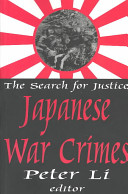

Most ebook files are in PDF format, so you can easily read them using various software such as Foxit Reader or directly on the Google Chrome browser.
Some ebook files are released by publishers in other formats such as .awz, .mobi, .epub, .fb2, etc. You may need to install specific software to read these formats on mobile/PC, such as Calibre.
Please read the tutorial at this link: https://ebookbell.com/faq
We offer FREE conversion to the popular formats you request; however, this may take some time. Therefore, right after payment, please email us, and we will try to provide the service as quickly as possible.
For some exceptional file formats or broken links (if any), please refrain from opening any disputes. Instead, email us first, and we will try to assist within a maximum of 6 hours.
EbookBell Team

4.0
56 reviewsThe question of national responsibility for crimes against humanity became an urgent topic due to the charge of ethnic cleansing against the previous Yugoslav government. But that was not the first such urging of legal and moral responsibility for war crimes. While the Nazi German regime has been prototypical, the actions of the Japanese military regime have been receiving increasing prominence and attention. Indeed, Peter Li's volume examines the phenomenon of denial as well as the deeds of destruction.
Certainly one of the most troublesome unresolved problems facing many Asian and Western countries after the Asia Pacific war (1931u1945) is the question of the atrocities committed by the Japanese Imperial Army throughout Asia and the Japanese government's repeated attempts to whitewash their wartime responsibilities. The psychological and physical wounds suffered by victims, their families, and relations remain unhealed after more than half a century, and the issue is now pressing. This collection undertakes the critical task of addressing some of the multifaceted and complex issues of Japanese war crimes and redress.